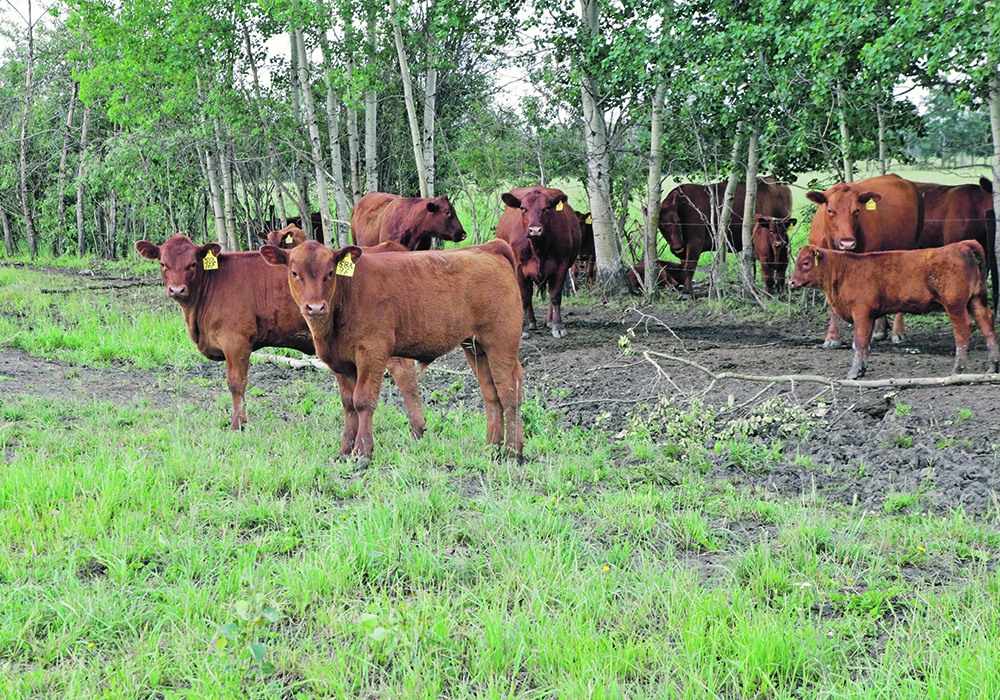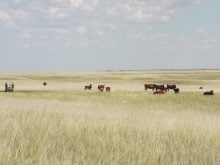Feeding the wrong mineral can compromise cattle immunity and take a bite from the next calf crop.
The more attention producers pay to mineral sources, management and supplementation, the healthier their herds can be, says an industry expert.
Laurentia van Rensburg, global head of commercial nutrition with Alltech, was at the Manitoba Beef and Forage Initiatives Brookdale farm July 16 to speak about strategic trace mineral supplementation for ideal efficiency and performance.
Read Also

Beef cattle more prone to trace mineral deficiencies
The trace mineral status of our cows and calves is a significant challenge for western Canadian producers and veterinarians.
“If you want to increase your bottom line or your profitability, it’s definitely one of the most important nutritional decisions you have to make,” she said.
Modern cattle need precise trace mineral supplementation, she said, because changes in agricultural practices have affected mineral content in feed.
Proper trace minerals in a diet are linked with production of reproductive hormones, reduction of free radicals, improvement of the uterine micro-environment for embryonic implantation and fetal growth and development.
Animals that receive proper supplementation show higher rates of conception, calving and weaning, as well as increased weaning weights, said van Rensburg.
It also helps producers target that desired rebreeding in the first cycle and produce more calves in the first 21 days of the calving season.
Cows with good supplementation are healthier during pregnancy. Pregnancy establishment, placental growth and transfer of trace minerals to the fetus are all improved. Nutrition delivered through colostrum and milk is better, leading to better calf growth, sexual development and ability to shake off illness, she said.
Minerals of note include calcium (essential for bone development, muscle function and nerve signaling), phosphorus (critical for energy metabolism, bone development and reproductive performance) and potassium for maintaining fluid balance, nerve function and muscle contractions.
Van Rensburg said copper is another major need. It aids in red blood cell formation, immune function and development of connective tissues and the nervous system. Zinc is vital for enzyme function, protein synthesis, immune response and reproduction.
Manganese is involved in bone formation, reproduction and enzyme function involved in metabolism. Selenium is crucial for antioxidant defence systems, thyroid function and immune response. Iron is key to formation of hemoglobin, which carries oxygen in the blood, and for enzyme functions. Chromium is important for enhancing insulin action and critical for energy metabolism.
Van Rensburg noted research from Texas A&M AgriLife Extension, which found that phosphorus supplements led to better weaning weights and overall calf weights. Six pounds of phosphorus per cow per year are recommended when grazing native, unfertilized pastures.
Supplemental minerals are needed to bridge nutrition gaps, but the form and source are important, van Rensburg said.
Inorganic trace minerals include oxides, sulfates, chlorides and hydroxides, while organic trace minerals include complexes, chelates, proteinates, polysaccharides, propionates and selenium yeast.
Inorganic trace minerals are byproducts of mining. While heavy use can help cows overcome deficiencies, an oversupply of any one trace mineral can lead to deficiencies in others and affect enzyme and vitamin stability. It can also result in low absorption rates and high levels of excretion.
That creates another problem, van Rensburg said. Excess minerals in manure can increase environmental pollution.
Organic trace minerals, on the other hand, are highly available to the animal, support mineral retention and tissue reserves, are readily absorbed, stored and used, and help meet the higher nutrition needs of today’s genetically advanced cattle.
Producers should test forage for mineral content. Soil testing can also provide insights. Trace mineral status can be affected by low intake and poor absorption, often due to inorganic or low-quality products.
This can lead to mineral-to-mineral antagonism, where minerals compete for absorption sites, van Rensburg warned. Metal ions can form insoluble complexes with other dietary components, and are excreted rather than absorbed.
Too much supplement can affect the performance of vitamins and enzymes.
Organic minerals have been shown to bolster performance, said van Rensburg. Cows tend to conceive more easily and with less exposure to bulls, and bring more calves to term.
One University of Florida study found that cattle with adequate trace mineral levels can benefit from some supplementation before vaccinations or when stressed.
















